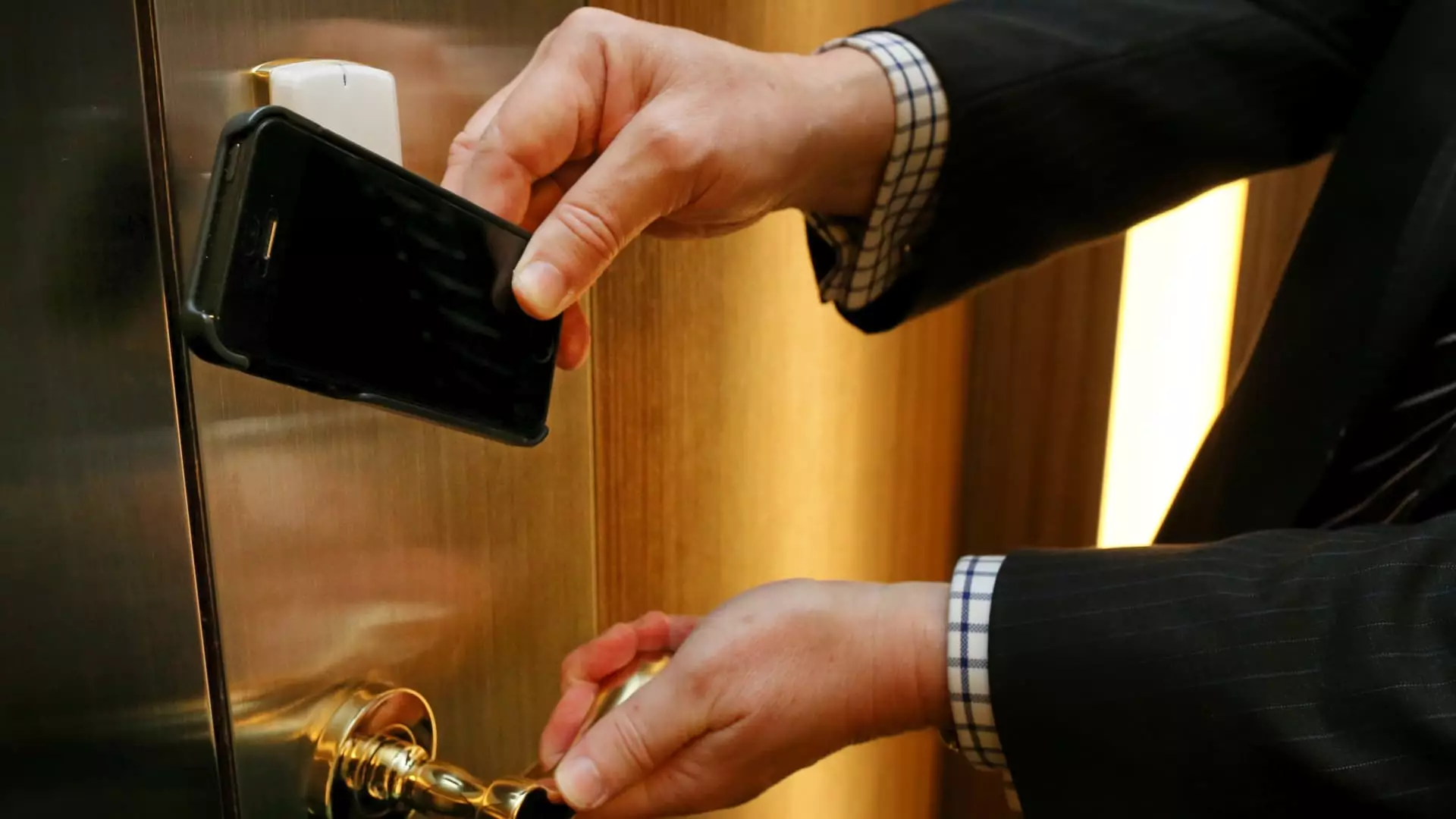In recent years, the hospitality industry has encountered an indispensable challenge: transitioning from traditional plastic hotel room keys to innovative digital alternatives. This shift, propelled by technological advancements and the emerging need for touchless solutions during the pandemic, has prompted hotel chains globally to explore modern key mechanisms. While major players have introduced digital key capabilities, the journey is not without its hurdles.
The pandemic reshaped consumer behavior, placing a spotlight on touchless interactions. As social distancing became crucial, many hoteliers recognized the potential of mobile key options in reducing physical contact with surfaces. Initiatives to embrace digital keys gained traction, supported by platforms such as Apple Wallet and Google Wallet, aiming to increase guest convenience through smartphone integration. Guests can simply tap their devices against a reader, streamlining the check-in process and minimizing typical delays at reception. This frictionless experience aligns with contemporary consumer expectations and preferences for technology-driven solutions.
However, the migration towards digital alternatives has not gone unnoticed by cybersecurity experts. Reports have indicated vulnerabilities in conventional plastic keys that could expose millions of guests to potential breaches. Such concerns have raised questions about the efficacy of emerging digital technologies. Although digital keys promise a convenient experience, they also introduce new security challenges. Experts highlight that these systems could potentially become targets for cybercriminals, and the urgency to mitigate risks necessitates heightened attention to security measures like multifactor authentication.
Despite the benefits outlined by technology advocates, actual guest adoption of digital keys remains tepid. Data from J.D. Power reveals that only a fraction of hotel guests—merely 14%—utilized digital key options during their stays. Furthermore, it appears that familiarity with traditional key cards makes it difficult for guests to embrace digital solutions fully, even if they have the corresponding mobile applications. Many still prefer the tactile experience of physical keys, illustrating the resilience of established consumer habits.
Moreover, not all hotels have upgraded their infrastructures to accommodate digital locking systems. While some major chains are incentivizing franchise owners to update their facilities, significant investments in new technology and equipment lead to slower implementation across the industry. The expenses associated with such transitions—maintenance, installation, and training—further complicate the process. As such, the widespread replacement of plastic cards remains uncertain in the near future.
Various leaders within the hotel industry have emphasized the potential advantages of digital keys. For instance, Chad Spensky, CEO of Allthenticate, draws parallels between plastic key cards and outdated password technology. He words this perspective compellingly, indicating a shift towards improved user experience and adaptability. The ease with which digital keys can be updated or patched in comparison to their plastic counterparts offers a compelling argument for continued exploration in this direction.
An additional advantage lies in the perception of safety. Guests utilizing digital keys tend to report a heightened sense of security than those using plastic alternatives, potentially contributing to increased satisfaction at properties that employ these technologies.
Despite the enthusiasm for digital keys, it may be premature to write off traditional plastic cards entirely. Some experts caution against adopting a singular approach to key solutions. The merits of older technologies remain relevant, particularly as developments in magnetic and RFID technologies enhance their capabilities. Additionally, the preference for physical keys among certain guests underscores the necessity for hotels to maintain versatility in their offerings.
Ultimately, the hospitality industry faces a balancing act: how to embrace cutting-edge innovations while respecting the preferences and behaviors of its diverse clientele. The digital realm provides convenience through its seamless integration with mobile devices, yet the human tendency to favor tactile experiences persists.
As the hospitality industry continues to navigate this transition, the conversation surrounding hotel room keys highlights a broader narrative on the interplay between innovation and tradition. While digital options present remarkable advantages, the coexistence of both old and new key technologies will likely characterize the hotel landscape for years to come. The goal remains clear: to enhance security and convenience while ensuring that guests feel comfortable and secure in their lodging choices. Only through thoughtful implementation and responsiveness to customer preferences can hotels successfully evolve and thrive in this digital age.

